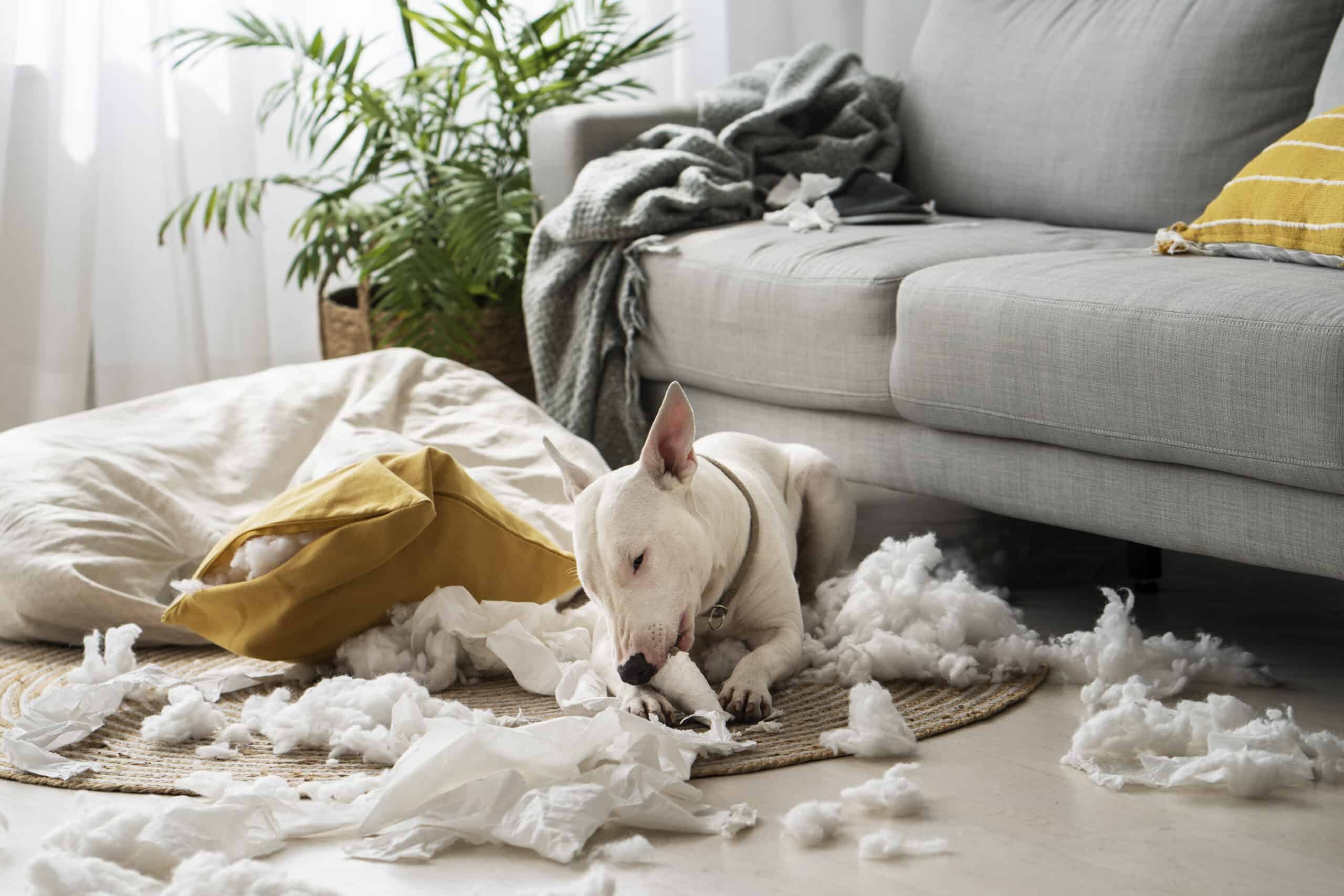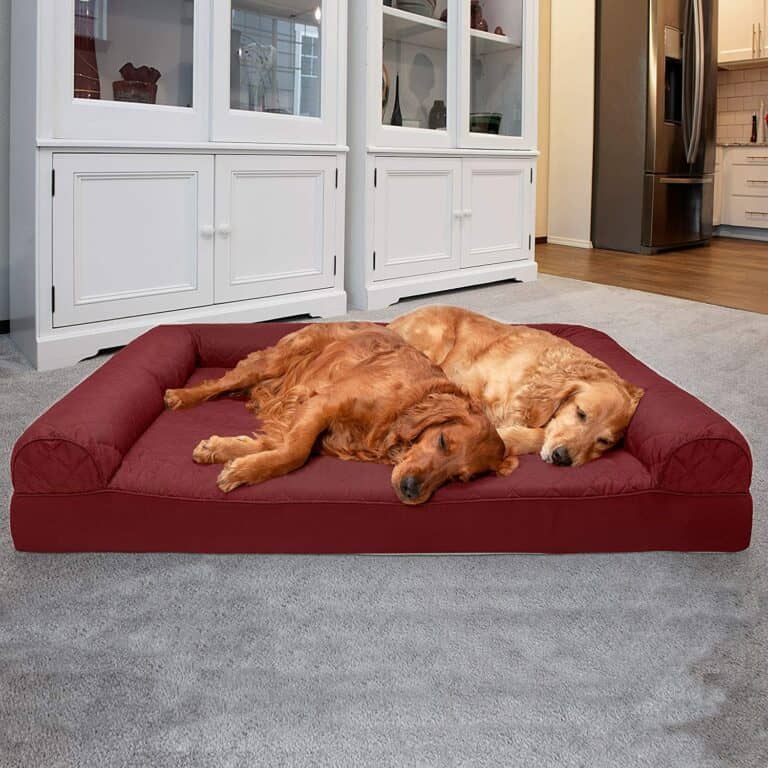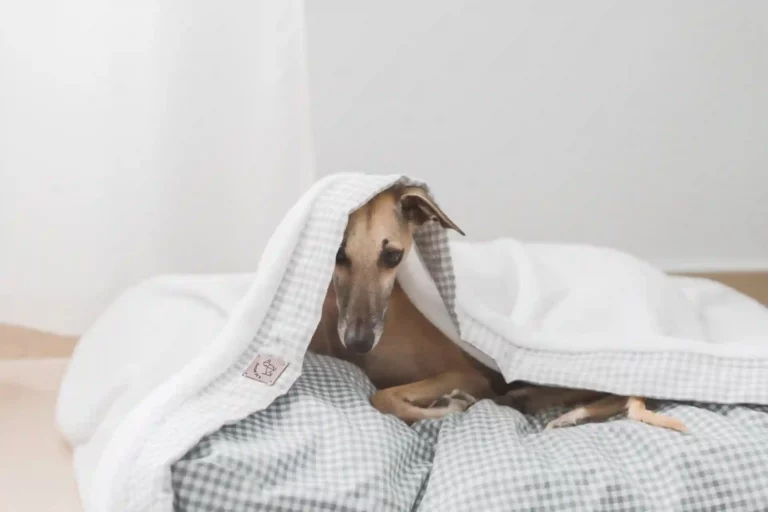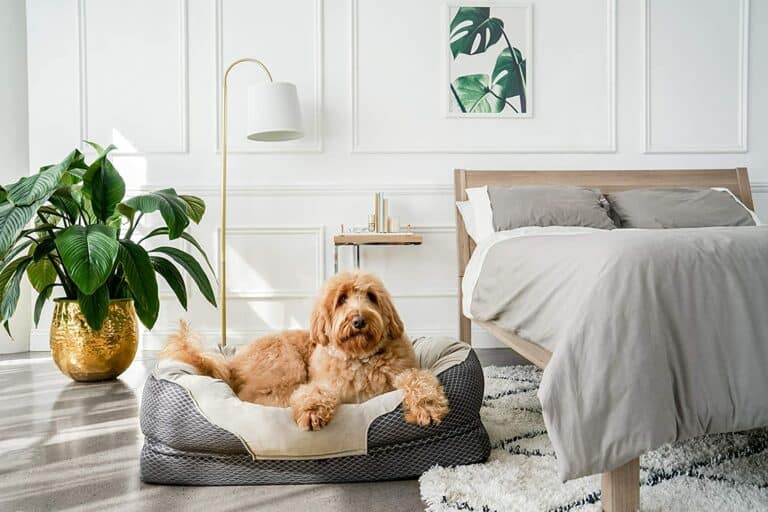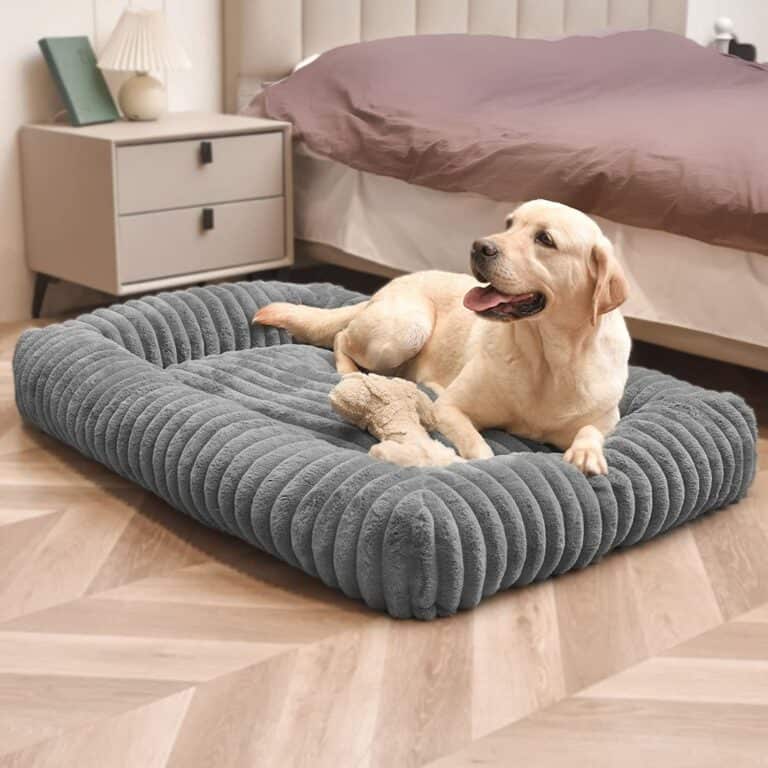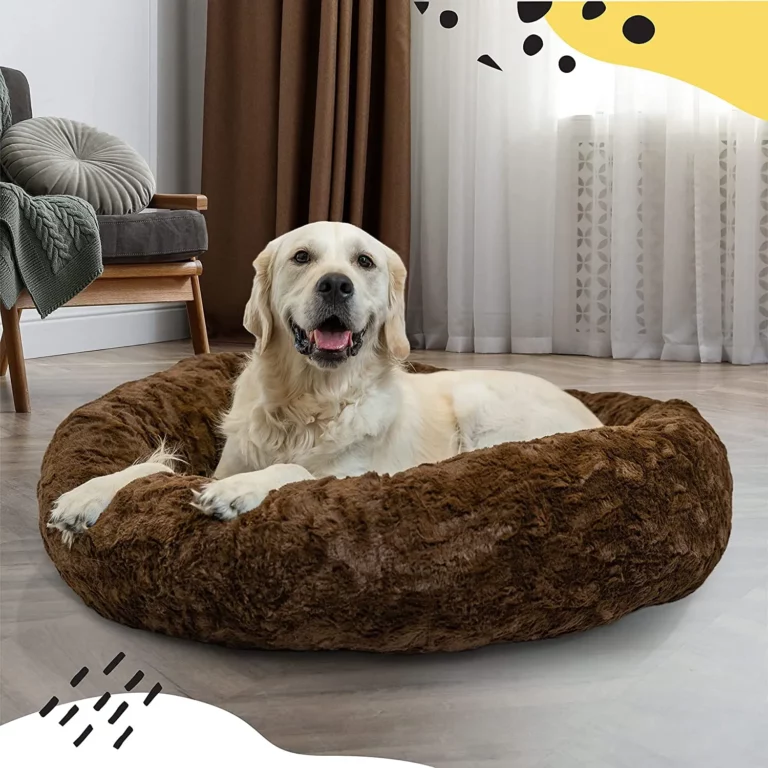Why Do Puppies Chew Their Beds?
Puppies are undeniably adorable, with their big, innocent eyes, wagging tails, and endless energy. However, when they start to chew everything in sight, including their beds, that cuteness can quickly turn into frustration. As a new puppy owner, you might be wondering why your furry friend is gnawing on their cozy bed, leaving a trail of fluff and foam in their wake.
Puppies chew their beds because they are still teething. They are young and still exploring the world. Chewing on the bed allows them to explore the texture and feel of their surroundings. It also helps puppies learn what they can and cannot chew.
Dog beds are usually made of softer material than the puppy’s toys or chew bones. So, when a puppy chews on his bed, he is learning that biting down hard and chewing won’t hurt him. Allowing your puppy to chew on his bed is an easy way to train him not to bite too hard or chew on inappropriate things.
Beds make for good puppy chew toys since they are of softer, more pliable material than your puppy’s toys. This is especially true of orthopedic dog beds which are of memory foam. They have lots of nooks and crannies for a puppy to explore.
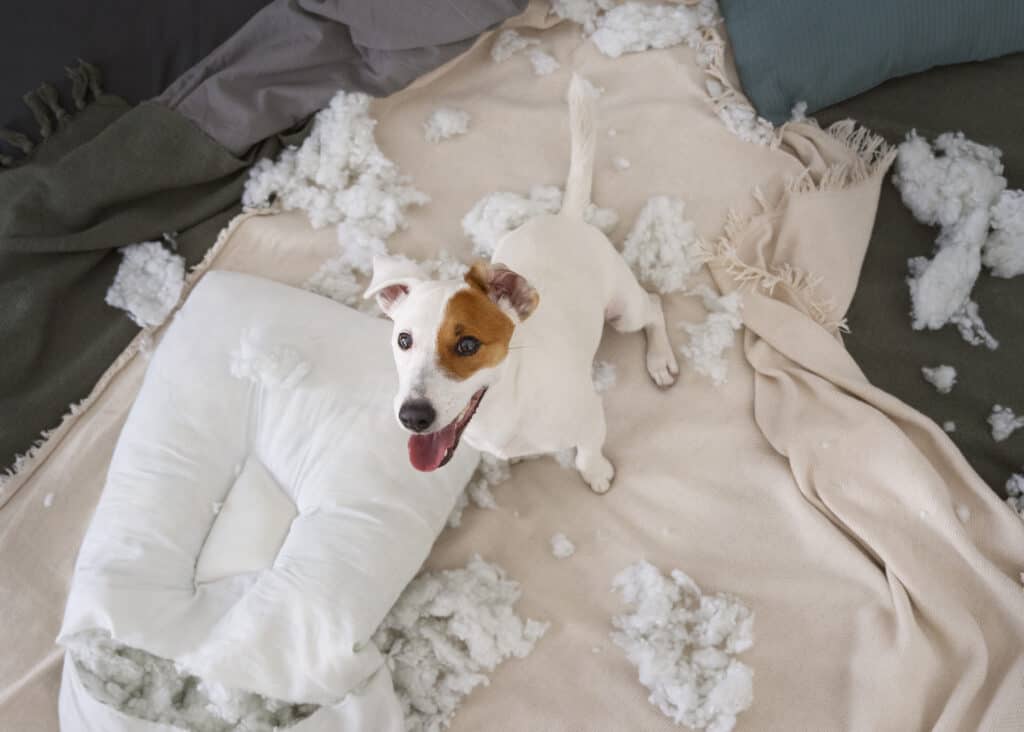
Puppy beds are also easy for young puppies to carry around with them. So, chewing on the bed can help a puppy develop his carrying skills.
Yet, there are some dogs who love to chew on just about everything even after they are no longer puppies.
You could try to train your dog to stop chewing. It is essential and helpful to know why your dog may be biting down on his sleep area.
Take him to a dog behaviorist to try to curb his chewing. Dog Behavioral scientists have found a wide range of social-cognitive abilities in domestic dogs. They say it is directly connected to humans and their lifestyles.
Don’t worry, you’re not alone. Puppies are known for their love of chewing, and their beds are no exception. But why do they do it, and what can you do to stop it? In this article, we’ll delve into the reasons why puppies chew their beds, how to prevent it, and what to do if your puppy can’t resist the urge to gnaw on their sleeping spot.
Why do puppies chew their beds?
Puppies are born with a natural instinct to chew. Chewing is not only a way for them to explore the world around them, but it also helps to relieve the discomfort of teething. In addition, chewing is a form of play, and puppies love to play.
So, when your little fur-ball gets bored or feels the need to chew, they may turn to their bed as a convenient target. Puppies may also chew their beds as a way to mark their territory or to simply release some pent-up energy.
Here are some common reasons dogs chew on their beds:
Teething
If puppies are teething, they try to soothe themselves by chewing on items. It’s the same with small babies when they are teething.
Boredom
- Boredom promotes destructive behavior. Your dog may not be getting enough mental stimulation or physical activity. He needs somewhere to focus his energy and attention. He may begin chewing items in your home—including his own bedding and toys.
- Make sure your dog is getting plenty of exercises. When he keeps busy with puzzles and toys, it will help to cut down on chewing habits.
Anxiety
A lot of dogs can be anxious because of fear or separation anxiety.
Dogs that suffer from severe separation anxiety can maul any bed in front of them. Dogs have the ability to understand and communicate with humans. It is up to you to understand your dog’s behavior. Only then can you deal with the behavioral issue that is making your dog chew his bed.
It’s important to know the difference between the two and the signs that point out to them.

Separation Anxiety
When a dog experiences Separation anxiety, he stresses about being alone. He will chew on anything he can get his mouth around. Dogs with separation anxiety have a history of trauma, abuse, or neglect.
Fear
When a dog fears an object, he will cower away from it and keep his body low to the ground.
Signs of fear
Dogs with fear exhibit stress signals like raised hackles. They have a slow approach while they size up the object they are afraid of. They may beg for attention, or attempt to cover their eyes.
How to handle fear
You can begin by keeping your dog on a leash when you take him outside. Make sure to praise him every time he approaches an object he is afraid of.
Lack of Training
You can always train your dog and refocus his chewing habit on something more productive. Give him a chew toy or a dental treat.
Don’t get disheartened if it takes time. Always give positive inputs to your dog as you would a child.
If you’re constantly yelling at your dog and making him feel bad, he’s not going to learn anything. Instead, praise your dog when he does the right thing and give him a treat or a chew toy.
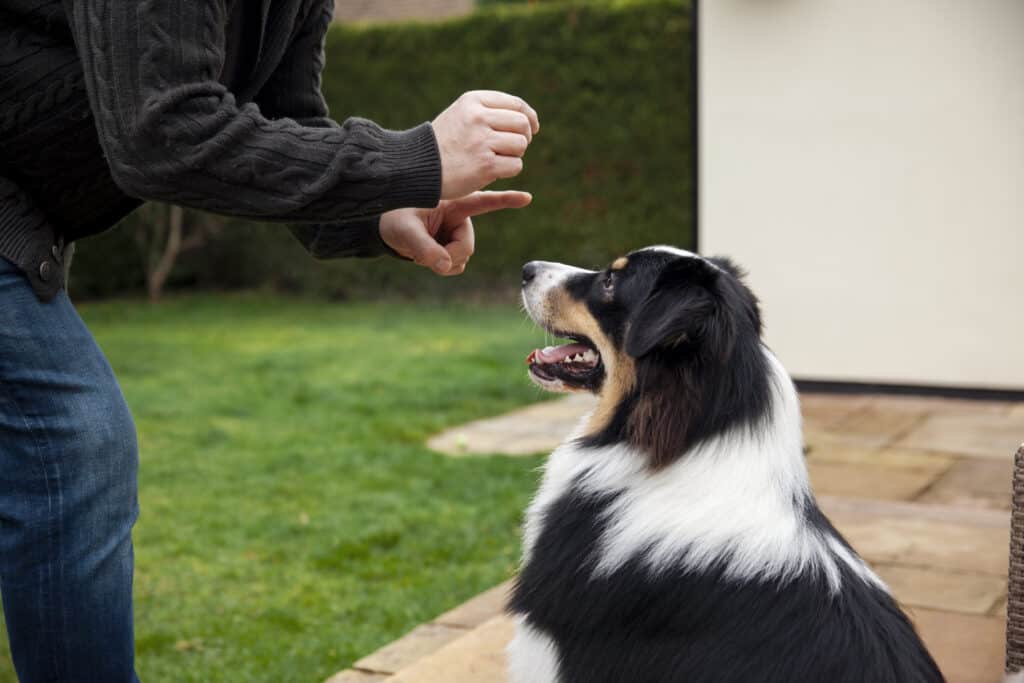
Keep an eye on your dog while he’s eating so you can take away his treat if he starts to chew on something he shouldn’t be. If you catch him chewing something he shouldn’t be, say “No!” in a low but firm voice and show him what he should be chewing on.
Exercise
On the bright side, if you do have a dog that chews everything in sight, he does have a lot of energy that he can release.
That means he’s a perfect candidate for some good old-fashioned exercise.
Just make sure you don’t put him in a situation where he might try to sneak off and chew on something he shouldn’t.
Is it normal for puppies to chew their beds?
Yes, it’s completely normal for puppies to chew their beds. As we mentioned earlier, chewing is a natural behavior for puppies, and their beds are often an easy target. However, it’s important to redirect this behavior to prevent damage to your puppy’s bed
What are some common reasons puppies chew their beds?
Puppies chew on their beds for a variety of reasons, including:
Teething
Teething is a painful process for puppies, and chewing on items helps to relieve the discomfort. Unfortunately, this can lead to destructive chewing behavior, including chewing on their bed.
Boredom
Puppies have a lot of energy and need plenty of stimulation to keep them occupied. If they are not given enough exercise and playtime, they may turn to chewing on their bed as a way to pass the time.
Separation anxiety
Puppies can experience separation anxiety when left alone or when their owners are away. This can lead to destructive behaviors, including chewing on their bed, as a way to soothe themselves.
Hunger or thirst
If puppies are not getting enough food or water, they may turn to chewing on their bed as a way to satisfy their hunger or thirst.
Lack of training
If puppies are not properly trained, they may not understand what items they are allowed to chew on and what is off-limits. Chewing on their bed may be a result of not being taught appropriate chewing behavior.
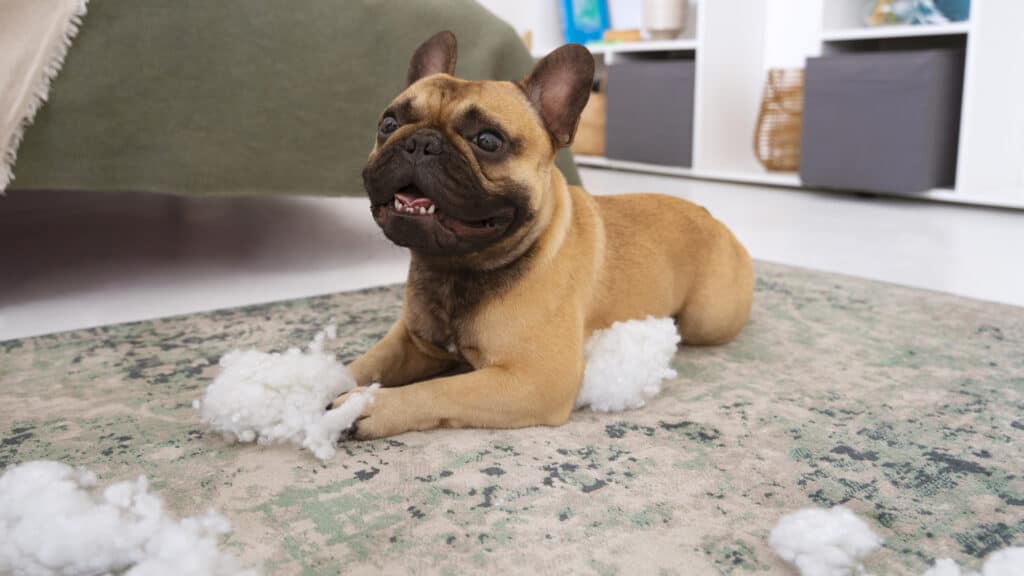
Lack of exercise
If your puppy isn’t getting enough exercise, they may become restless and turn to chewing on their bed as a way to burn off energy.
How can I tell if my puppy is chewing their bed too much?
It’s normal for puppies to chew on their beds, but there comes a point where it can become a problem. Here are some signs that your puppy may be chewing on their bed too much:
Excessive chewing
If your puppy is spending a lot of time chewing on their bed, to the point where they are destroying it, it’s a sign that they may be chewing too much.
Injury or illness
If your puppy is chewing on their bed excessively, it could be a sign of an underlying medical issue or injury. If you notice any other concerning symptoms, such as lethargy or loss of appetite, it’s best to take your puppy to the vet for a checkup.
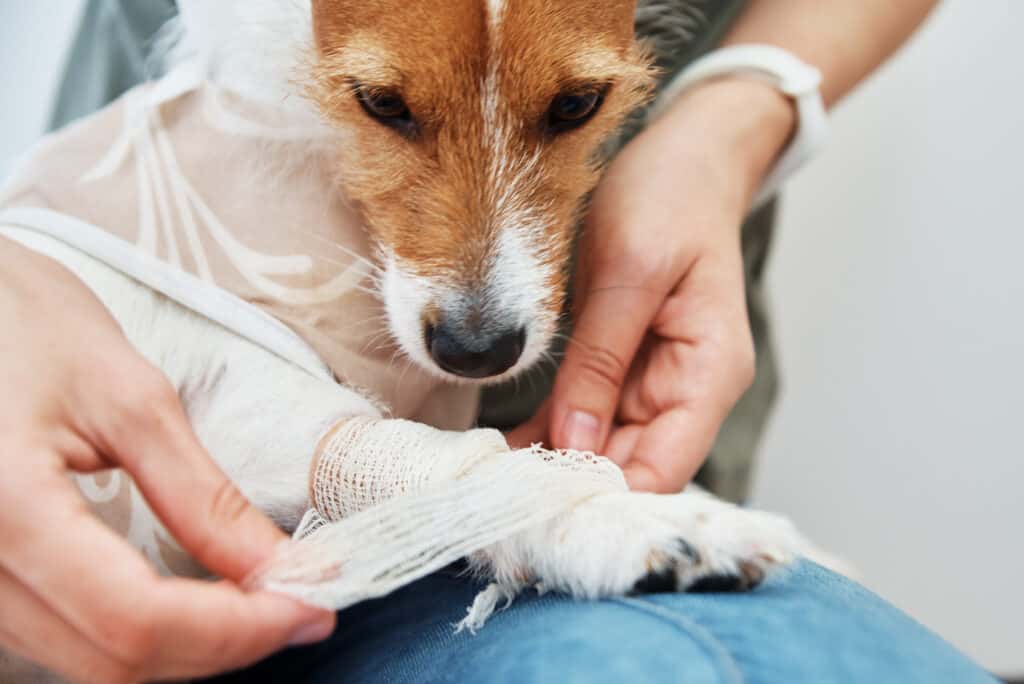
Aggression
If your puppy becomes aggressive when you try to take their bed away, it could be a sign that they are overly attached to it and may be chewing on it too much.
Ingesting bed material
If your puppy is ingesting pieces of their bed, such as foam or stuffing, it could be a sign that they are chewing too much and putting themselves at risk for digestive issues or other health problems.
How can you stop puppies from chewing their bed?
Stopping your puppy from chewing their bed requires patience and consistency. There are several things you can do to help your puppy stop chewing on their bed.
Here are some tips to help you curb this behavior:
Remove the bed
If your puppy is chewing on their bed excessively, it may be best to remove the bed entirely until the behavior subsides. Instead, provide your puppy with a cozy blanket or dog bed that they can’t destroy.
Try a different type of bed
If your puppy is chewing on their bed because they are teething or experiencing discomfort, try a different type of bed that is more comfortable and supportive.
Supervise your puppy
Keep an eye on your puppy and intervene when you catch them chewing on their bed. Redirect their attention to an appropriate chew toy or take away the bed if necessary.
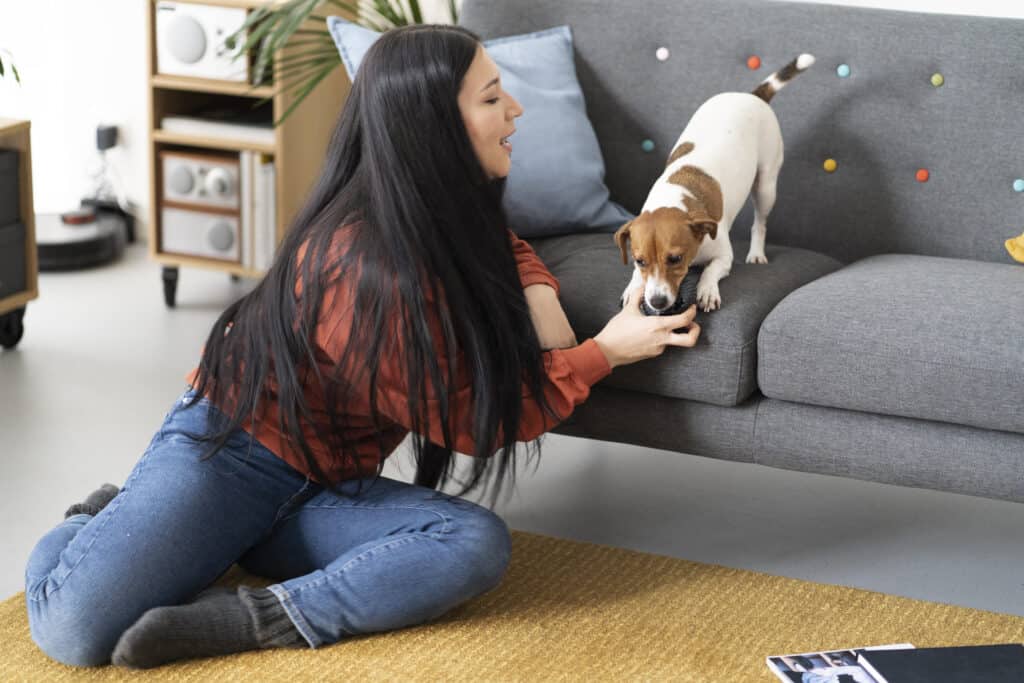
Provide plenty of chew toys
Puppies need to chew, so it’s important to provide them with plenty of appropriate chew toys to satisfy this need. Look for toys made specifically for teething puppies, as these are designed to soothe sore gums and promote healthy chewing habits. Keep a variety of toys on hand and rotate them regularly to keep your puppy engaged.
Create a designated chewing area
Designate a specific area in your home where your puppy can chew to their heart’s content. This could be a corner of the room with a cozy bed or blanket, or a playpen with plenty of toys. Make sure to supervise your puppy when they’re in this area and redirect them if they start to chew on something they shouldn’t.
Teach the “leave it” command
Teaching your puppy the “leave it” command can be a lifesaver when it comes to preventing unwanted chewing. Start by holding a treat in your hand and saying “leave it.” When your puppy stops trying to get the treat, reward them with a different treat or lots of praise. Gradually increase the difficulty by placing the treat on the ground or introducing distractions.
Use bitter spray
Bitter spray is a non-toxic spray that is designed to deter dogs from chewing on certain items. Simply spray the bitter spray on your puppy’s bed or any other items you want to protect, and your puppy will quickly learn to avoid them. Just make sure to test the spray on a small area first to make sure it doesn’t discolor or damage the material.
Provide plenty of exercise and playtime
Puppies have a lot of energy, and if they don’t have an outlet for it, they may turn to chewing as a way to release it. Make sure your puppy gets plenty of exercise and playtime throughout the day to burn off excess energy. This will not only help to prevent chewing but also promote good overall health.
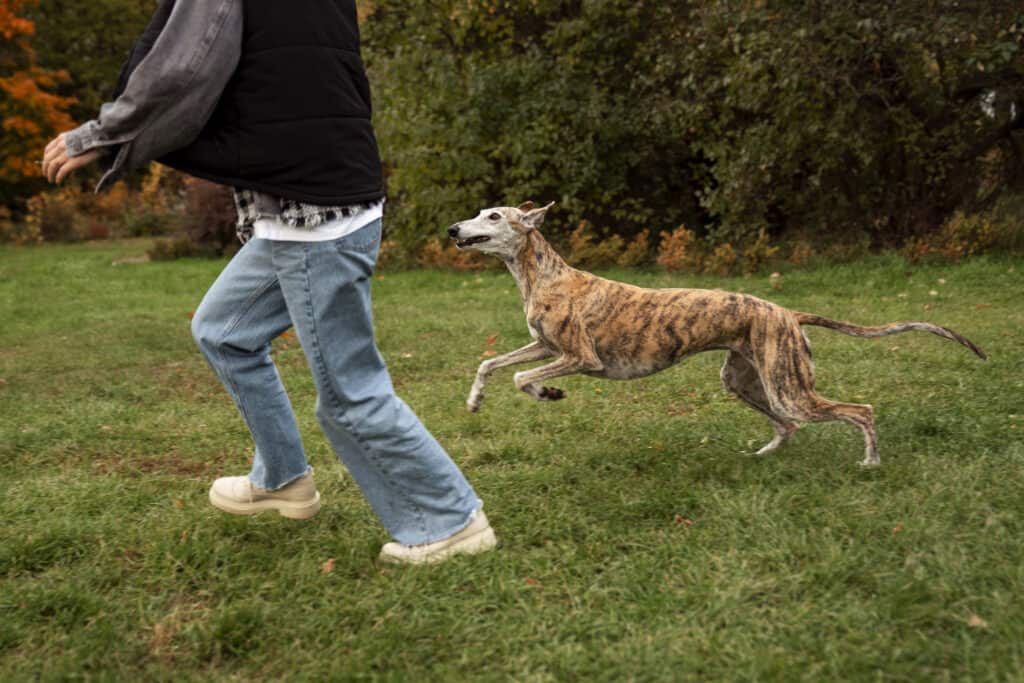
Invest in a good Dog Bed For Chewers
First, identify the underlying reason for your dog chewing up everything in sight. Once you solve that, your dog’s chewing will be under control.
Don’t worry, it is not as if your dog will never have a bed. You will need to do a bit of trial and error to find a good quality bed that suits your dog.
After you experiment a little to find out what works for your dog, you can invest in a good quality bed. You can check out some of the best chew proof dog beds here before you decide on one.
Seek professional help
If your puppy’s chewing behavior is persistent and doesn’t improve with these strategies, it may be time to seek the help of a professional dog trainer or behaviorist.
Are there any other tips or advice for dealing with puppies that chew their bed?
Here are some additional tips for dealing with puppies that chew their beds
Be patient
Chewing is a natural behavior for puppies, and it can take time to redirect their behavior. Be patient with your puppy and consistently reinforce positive chewing habits.
Provide plenty of attention and affection
Puppies need plenty of attention and affection from their owners. Spend time playing with your puppy and engaging in activities that will keep their mind and body active.
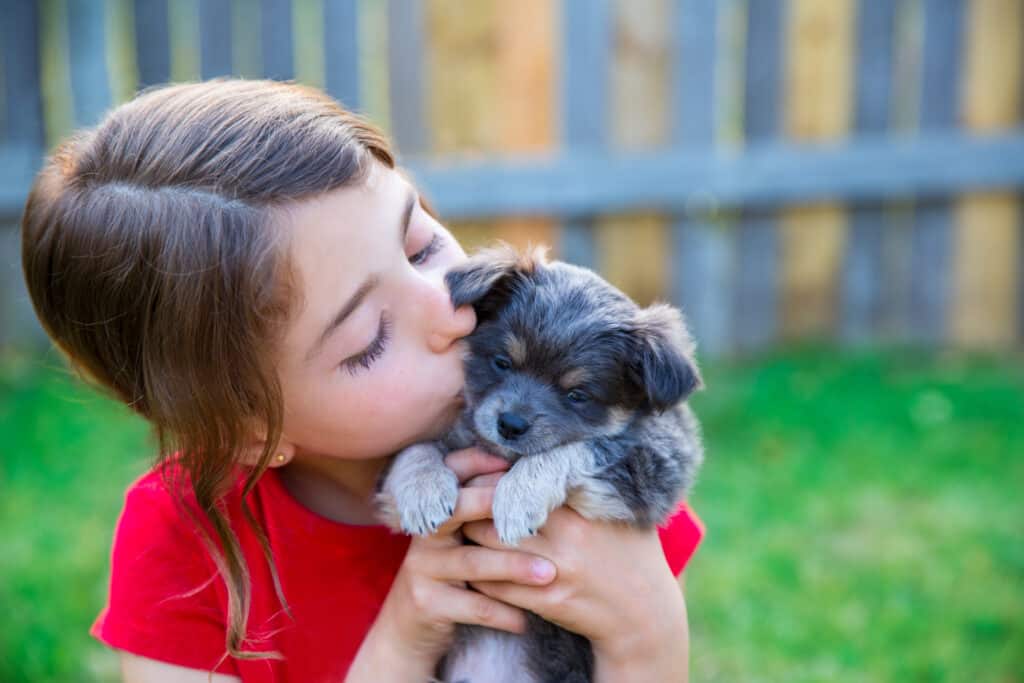
Consider crate training
Crate training can be a helpful tool in preventing destructive chewing behavior. A properly sized crate can provide a safe and comfortable space for your puppy when you are unable to supervise them.
Use positive reinforcement
Use positive reinforcement to reward good behavior and encourage your puppy to develop healthy chewing habits. Praise your puppy when they use their chew toys appropriately and redirect negative behavior with a gentle command.
Be consistent
Consistency is key when training your puppy. Make sure everyone in your household is on the same page when it comes to acceptable chewing behavior, and consistently reinforce positive habits.
Conclusion
In conclusion, puppies chew on their beds for a variety of reasons, including teething, boredom, separation anxiety, hunger, and lack of training. To prevent destructive chewing behavior, provide appropriate chew toys, monitor your puppy, train them, offer plenty of exercise and playtime, and use deterrents if necessary. If your puppy continues to chew on their bed despite your best efforts, seek the help of a professional dog trainer or behaviorist. With patience, consistency, and positive reinforcement, you can help your puppy develop healthy chewing habits and prevent future bed destruction.
Frequently Asked Questions

